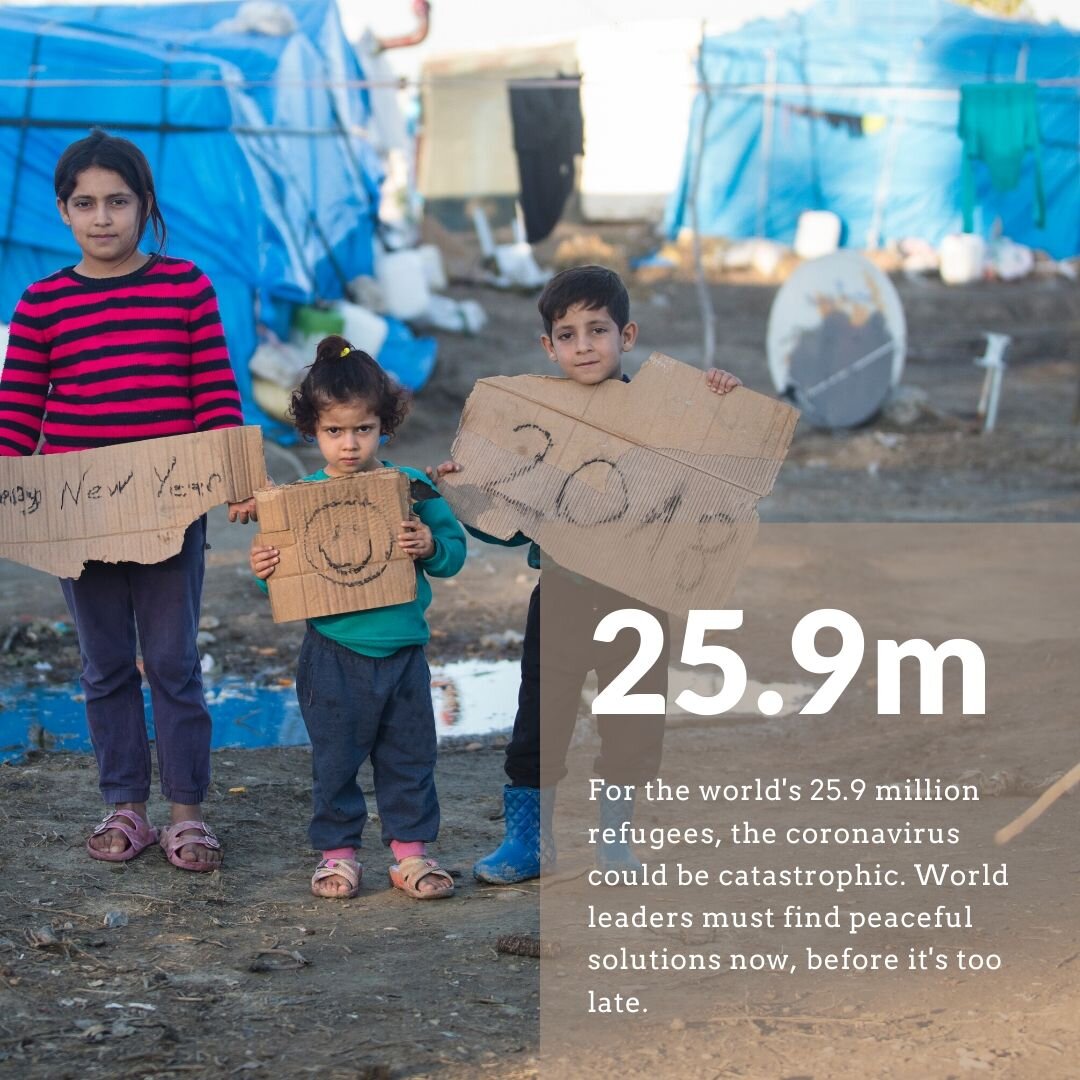How Man-made Disasters Exacerbate COVID-19 Pandemic
From Afghanistan to South Sudan, wars continue to be waged, despite the threat of coronavirus to vulnerable populations. And in the fog of fighting COVID-19 domestically, world leaders have lost their vision for creating peace in conflict zones around the globe, despite an ever more critical situation for refugees and internally displaced people (IDP). What’s worse, countries are turning inward and cutting off war-torn regions from life saving aid. On March 27, U.S. President Donald Trump’s administration announced it would cut off tens of millions of dollars to Yemen for health care programs and other aid.
According to the United Nations Refugee Agency, there were 25.9 million refugees in the world by the end of 2018, as well as 41.3 million IDP and 3.5 million asylum-seekers. Many of these people live in cramped living quarters, sharing rooms with other families or packed into camps with unsanitary conditions. How can people in these conditions practice social distancing? Without running water, how can public health officials expect people to wash their hands for 20 seconds—the recommended precaution to ward off COVID-19?
The best way to protect refugees and IDP are to end the conflicts that forced them out of their homes in the first place, while continuing to provide aid during the global coronavirus pandemic. The United Nations continues to foster dialogue between the parties to the conflict in Yemen to secure a nationwide ceasefire. In hopeful news on Thursday, UN special envoy Martin Griffiths said talks on a ceasefire could be completed soon.
But a slew of other conflicts, skirmishes, and violence around the world threaten the peace, security, and health of local populations. Even small scale violence, like gun deaths in America, are taking valuable resources away from COVID-19 patients. Every intensive care unit (I.C.U.) bed in a precious and finite resource. Coronavirus patients and gun violence victims will be competing for limited resources in the coming weeks, but while there’s no cure for coronavirus at present, gun fatalities are completely avoidable. Baltimore Mayor Jack Young implored residents in his city to put down their guns and stay at home.
This kind of leadership, demonstrated by local officials and the UN, is the kind of leadership needed at the highest level of governments around the world. World leaders have the power and responsibility to help countries experiencing conflict to stop the violence and prepare for the potential onslaught of coronavirus.


